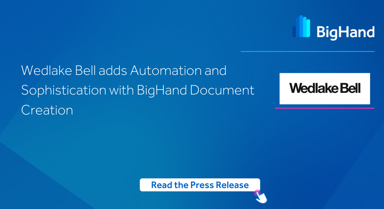I have often asked the question “Why don’t lawyers across the world recognize that technology skills are an essential part of being a good lawyer?” I found that many people working in the industry agree with me, that lawyers don’t seem to understand that.
One fine example… “I did not scrape and claw my way to firm partner to replace my secretary with a PC”. And how about this one, reported by a senior solicitor in Australia a few years ago. She said that a “Partner who used a non-interfaced Dictaphone and had his secretary print emails – he was in his 40s, so it is not a generational issue”
Over the past year or so, remote working has become the norm and while that may change as we gradually return to the office, the need for improved technology skills will remain. Without that helpful colleague at the next desk, lawyers have had to become far more proficient with technology. Sadly, that has not necessarily resulted in improved productivity, and certainly not with consistently formatted, high-quality documents.
As document automation increasingly becomes available, document quality and consistency will improve. Without it, how much easier it seems to re-use existing filed documents and precedents and just make a few adjustments without realizing that there may be hidden tracking or metadata. The challenges that firms experience as a result of document recycling are plenty. The use of direct formatting as opposed to native Word Styles, inconsistent numbering, missing cross-references, undesired spacing, margins, and inconsistencies with general formatting are just a few common challenges.
Documents are the output of legal work, the tangible and measurable return for the services provided. Therefore, firms must ensure their documents are of the highest quality to maintain client relationships and reputation.
The document team at legal technology provider, BigHand, has decades of experience in this area. From their customers, they know how fixing badly formatted documents can be hugely time-consuming, costly, and add significant delays to the customer. In addition, they often see that when people re-use older Word documents, hidden metadata carries over into “not-so-new” documents and that this leads to corruption and in extreme cases, the complete loss of work.
BigHand’s products are designed to help simplify routine document creation tasks, which can be layered with LTC4’s Learning Plans to ensure better working practices and efficiency overall.
Outdated processes
Without a good understanding of how a document is structured and how styles are used a legal document can be a minefield. How many legal professionals even truly understand that even a normal blank document has embedded styles? Is the latest Word functionality really understood by the majority of lawyers? Yet it is fundamental to the production of good quality documents.
Getting documents right by using a “built for the masses” tool like Microsoft Word is challenging. Many of us developed bad habits using this document tool before our working lives, and for those in the legal environment, the ongoing crunch to get through as much work as possible makes it hard to find the time or energy to rethink and retrain. The “how should I be creating this document” is quickly trumped by the “how can I create this document, right here, right now”. Unfortunately, the latter does not lend itself well to downstream productivity and efficiency, as it may keep teams of assistants and document specialists busy tidying up time-consuming and frustrating issues, which could have easily been avoided.
From a training perspective, introducing good working practices such as starting from the right legal document template with the desired formatting options included; not saving a copy of old documents as a starting point, and using clean content from a library will reduce time downstream. Firms have also seen success with teaching the basics of Microsoft Word – particularly those who have used the workflow-based Learning Plan “Working with Legal Documents” developed by LTC4™ to address specific skills gaps.
Technology for the future
The way law firms transact their business has changed dramatically over the last fifteen years, most notably with the increasing use of technology. However, process efficiencies relating to core business functions have been somewhat neglected. Having invested many thousands on the implementation of Document Management Systems (DMS) to store and retrieve information, many firms have not defined the processes surrounding the production of documents, even though this is absolutely fundamental to their business.
BigHand’s products help support the creation and maintenance of these processes by helping users follow best practices in document creation. From a core requirements perspective, accurate DocID stamps, comprised of DMS data, that automatically update is critical to being able to easily identify, locate and reference documents internally within the DMS.
DMS systems are now highly searchable. Firms often try to put in place naming convention standards for their documents to make them even easier to find. BigHand’s applications also help here by allowing them to establish the naming convention and have the document name be automatically generated for the user when saved to the DMS.
In a briefing on legal efficiency in June 2010, Richard Susskind a trusted legal technology specialist said: “Lawyers are in the business of generating documents and for over 30 years we have had technologies that will help support this process, make it more reliable and quicker – and somehow we just haven’t embraced that.” There is some good news in that the majority of the US Bar Associations state, “To maintain the requisite knowledge and skill, a lawyer should keep abreast of changes in the law and its practice, including the benefits and risks associated with relevant technology (…)"
In a time where lawyers of all technical skill levels, paralegals, legal assistants, and others have less access to help each other due to remote working, it becomes important to consider leaning on technology to help them do more. Over time, being less reliant on external assistance and improving their own technological skillsets, will allow them to quickly overcome barriers to work that they may have needed assistance with before. BigHand’s Document Creation suite has this as a goal; provide the best tools, built-in line with native Word standards, that help you do more without needing to be an expert in the Microsoft Office suite.
What is LTC4™
Around 10 years ago a coalition of legal IT training, legal technology professionals, and lawyers was formed, their extensive experience in the legal industry led them to try and address the fundamental skills gaps directly impacting a firm’s productivity and profitability.
They formed the Legal Technology Core Competencies Certification Coalition (LTC4™) and voluntarily spent almost 4 years of their time identifying the core competencies for lawyers and their support staff. The result was a set of nine workflow-based learning plans focused on working with and managing legal documents and emails; time recording, remote working, CRM, and security awareness. These competencies are regularly reviewed by LTC4™ volunteers and have become the benchmark by which a firm can reassure its clients that their employees not only know their tech (regardless of which applications they use) but can actually prove they do.
LTC4™ is a not-for-profit organization with the aim of improving skills across the industry and now offers individual Learning Plans via its website together with assistance with assessment towards Certification. Law firms, legal departments, and law schools across the world have become part of the coalition and can use these Learning Plans to structure their training programs and work towards individual LTC4™ certification for their employees – there are two streams one for attorneys and another for support staff. Certification is key – assessment methods can vary and LTC4’s own Certification Pod are there to help with their development.
Clients will surely become even more demanding of quality and security as the world opens up again. They will expect the firms they instruct to not only use best-of-breed technologies but also that they take document quality, cyber security, and the necessary technology skills seriously. How also much more reassurance would there be if the firm could state in response to proposals that their legal professionals were LTC4™ Certified as competent with technology including cyber security?
For more information:
Joanne Humber, Marketing Consultant at Humber Associates/LTC4
Email: [email protected] or [email protected]
Tel: +44 (0)1789 450955
Website: https://www.ltc4.org/






